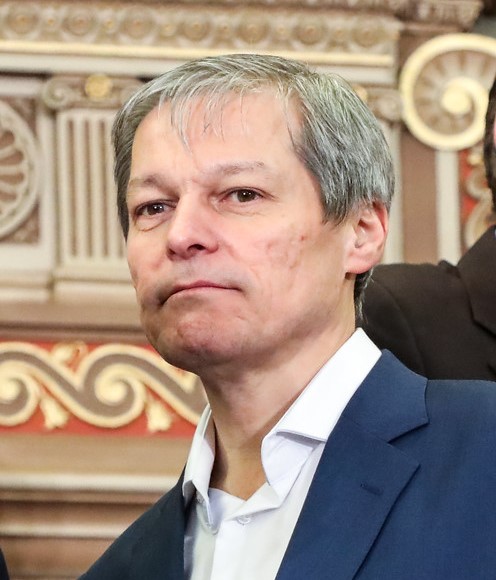On June 19 the former Romanian Prime Minister Dacian Cioloș was elected President of the rebranded liberal group in the European Parliament, “Renew Europe.”
Renew Europe emerged by the merge of ALDE Group, the French La Republique en Marche (REN) and other parties inspired by Emmanuel Macron’s views. The Romanian politician had all the qualifications for the job: the leader of the liberal PLUS party, he is also a former Prime Minister (2015-2017) with experience in EU agricultural and rural policy (2010-2014).
The alliance boosts the significance of PLUS in a Romanian context. Indeed, the alliance between Cioloș’ party and Dan Barna’s Union Save Romania have given rise to a value-based opposition with a substantial policy agenda and credibility when it comes to promoting an anti-corruption agenda. Thanks to their efforts the two parties elected 8 seats in the European Parliament, securing a 22.36% share of Romanian vote. For the Renew Europe, this is a breakthrough in Eastern Europe and in rural constituencies, key objectives for the liberal movement.
Cioloș’ election is not merely “symbolic” but a significant act of resistance and an expression of European solidarity.
The Romanian government is subject of severe scrutiny by the European Commission due to issues concerning the rule of law, corruption and independence of the judiciary. When Romania assumed the rotative EU Council Presidency in December 2018, President of the European Commission Jean-Claude Juncker openly questioned whether the government was able to take on such a responsibility. In a resolution wrapping up the plenary debate held on October 3, 2018 with the Romanian Prime Minister Viorica Dăncilă, the European Parliament called on the Romania to safeguard rule of institutional checks and balances, whilst ensuring that corruption, while in office, is not decriminalised.
At the time, MEPs expressed their “deep concern” about judicial and criminal law reforms, which undermined the separation of powers and the fight against corruption. A motion condemning new legislation that would allow further control of judges and prosecutors by the government in Romania passed with 473 votes in favour, 151 against, and 40 abstentions.
That motion was in line with repeated warnings by Council of Europe Group of States against Corruption (GRECO) and the Venice Commission. MEPs in effect dew a red line on the independence of the judiciary, in principle and in practice. This was not an isolated incident.
MEPs have also condemned warned against legislation on the financing, organisation and function of NGOs that could intimidate civil society, curtailing freedom of association and the right to privacy. In April 2018, the President of the European People’s Party Joseph Daul blatantly accused the Romanian government of changing its Criminal Code “to ensure that their leader and other politicians will not have to answer for their wrongdoings.”
“The PSD-ALDE actions with regards to the justice system are inconsistent with the principles of the rule of law, of the European treaties and go completely against the interests of millions of honest Romanians,” Daul said at the time. He went on to add that the degree to which an EU member state that holds the Presidency of the European Council continues to violate EU rules and norms “is unbelievable.”
It is clear that the Romanian government has tried to intimidate Laura Codruţa Kövesi, the European Parliament’s candidate for the Chief European Public Prosecutor. “Romania’s attempt to sabotage Laura Codruța Kövesi’s candidature is shameful and looks like a vendetta commanded by the leadership of the Social Democrats (…) The EU should not reward the Romanian government for this unacceptable action,” MEP and Chair of the EP Budgetary Control Committee Inge Gräßle said in April 2018.
That message is still relevant, in Romania and elsewhere in the EU. In this context, the election of Dacian Cioloș reflects both solidarity with the anti-corruption movement in Romania but also symbolizes a commitment to liberal democratic values that cannot be taken for granted, in Romania and elsewhere.
The Bureau of Renew Europe is composed by the Dutch Malik Azmani (People’s Party for Freedom and Democracy) who was elected for the role of the First Vice-President and seven Vice-Presidents: Katalin Cseh (Momentum Movement – Hungary), Luis Garicano (Citizens – Spain), Martin Horwood (Liberal Democrats -UK), Morten Lokkegaard (Venstre -Denmark), Iskra Mihaylova (Movement for Rights and Freedoms – Bulgaria), Frédérique Ries (Reformist Movement -Belgium) and Dominique Riquet (Radical Party -France).

